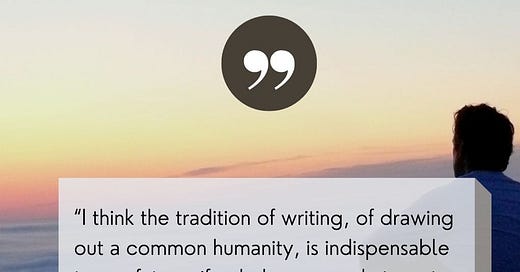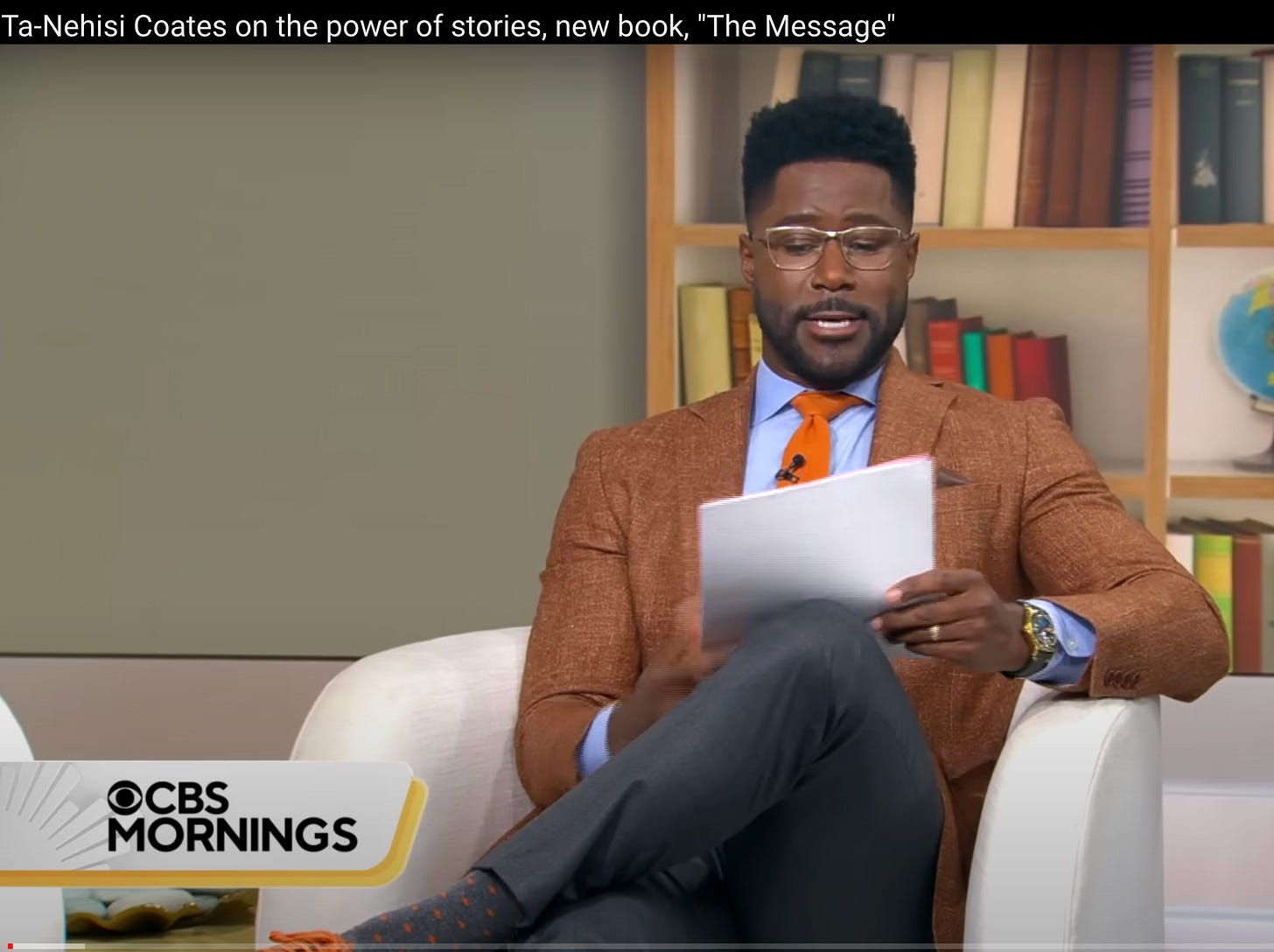I was excited to hear the interview with Ta-Nehisi Coates on the CBS Morning Show this week regarding Coates’ new book, The Message. The inside jacket of the book offers a summary that describes three main parts:
One, “which takes Coates on his inaugural trip to Africa.”
(Two), “he takes readers along with him to Columbia, South Carolina.”
(Three), “(he takes readers to) Palestine (where he) sees with devastating clarity the tragedy…”
The interview took place Monday morning, the day before the release of The Message on Tuesday. I have so many thoughts and questions after watching the interview below, which was dominated by one member of the three-person CBS team. From the opening question in which the Coates’ work is called “extremist” to the final question where CBS’ lead interviewer says, “it’s what I struggled with throughout the book,” I found myself asking if he really read the whole book. Because if he did, the answer is right in the opening chapter of the book, titled “Journalism is not a luxury” where Coates described his objective beautifully!
“I think the tradition of writing, of drawing out a common humanity, is indispensable to our future, if only because what must be cultivated and cared for must first be seen.”
So, Tony Dokoupil (and other media members, I have some questions) I hope you consider as you do these interviews and cover the news. Ta-Nahesi Coates tried to help you with very respectful responses, but I am not sure the insights and questions he asked in return were given the same level of sincere reflection he offered. Your questions seemed to be pre-determined, no matter what the response was. Was this really an interview where each side was treated equally and both were considered sources of valuable information?
Anyway, here are my basic questions…Coates reminded those who were listening to both sides of the conversation to all of these:
How is your own identity possibly creating any bias in your reporting?
Whose story is being told?
Whose voice is missing?
How do countries comes to power?
Again, I don't see how someone who read the opening chapter could have any major misconceptions about the rest of the book. But then again, Coates explains why this interview was far from a unique experience for him (and other Americans who are members of groups that have been historically marginalized) when he notes toward the end of the interview when he is asked about the role of the oppressed people in their oppression. “I have a very, very, very, very moral compass about this and perhaps it’s because of my ancestry. Either apartheid is right, or it’s wrong; it’s really, really simple.”
A final quote from chapter one from Coates to close out my thoughts on this interview:
“We require another standard - one that sees the sharpening of our writing as the sharpening of our quality of light. And with that light we are charged with examing the stories we have been told, and how they undergird the politics we have accepted, and then telling new stories ourselves.”
Here’s to new stories!
A quick note on The Message
It might be recency bias, but this is one of the best books I have read in quite some time. I listened to the audiobook, then immediately picked up a hard copy and am reading through it again because it is haunting me…
From Coates in Chapter One, “Journalism Is Not a Luxury”
Haunt. You’ve heard me say this word a lot. It is never enough for the reader of your words to be convinced. The goal is to haunt - to have them think about your words before bed, see them manifest in their dreams, tell their partner about them the next morning, to have them grab random people on the street, shake them and say, “Have you read this yet?”
Well, have you?!






Really appreciate your thoughtful reflection on author and the interview.
First seek understanding...this part we can all do, regardless of race, political position or socioeconomic status...it's a personal choice with no realized loss but immeasurable gain in our stance as human